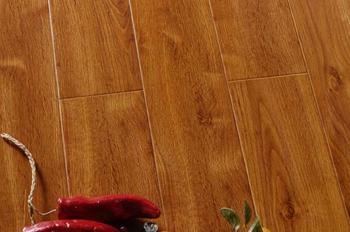 The year 2012 was a tough one for the entire building materials sector, often described as a cold winter. The real estate market's strict regulations had a ripple effect, causing difficulties for downstream industries. Home and building material stores struggled to survive, and the flooring industry at home faced shrinkage or even closures. However, the flooring industry’s fluctuating performance wasn’t just due to policy changes—were there deeper, underlying factors? As the property market showed signs of recovery in 2013, it raised an important question: Was this a golden opportunity or a major challenge for flooring companies? What direction would the industry take in the future?
One long-standing issue in the flooring industry is the severe homogenization of products. Despite years of growth, the original innovation capabilities of many companies have weakened, hindering further development. When a particular brand gains popularity, others quickly follow with imitations. This blind copying not only stifles creativity and personalization but also leads customers to focus more on aesthetics than on product quality and practical experience. To move forward, the flooring industry must prioritize innovation and differentiated design, creating unique value that stands out in a crowded market.
Another ongoing problem is the lack of standardized regulations and chaotic competition. The entry barriers for flooring businesses are low, leading to a saturated market with numerous brands. However, without proper industry management, many small players resort to price wars to attract buyers. This has created space for counterfeit products to thrive, undermining consumer trust. Without sufficient product knowledge, some consumers may be lured by low prices, further damaging the industry’s reputation. Vicious competition remains a key obstacle to sustainable growth.
Looking ahead, health and environmental protection have become central concerns. As living standards rise, so do consumer demands for eco-friendly and safe products. The flooring market has shifted from price-based competition to service-oriented competition, with health, sustainability, smart technology, and style becoming key selling points. For flooring companies to stand out among countless brands, they must not only focus on appearance but also ensure their products meet high environmental standards. Quality and eco-friendliness are essential for long-term success.
In addition to product quality, companies need strong sales teams. A comprehensive system for recruitment, training, and daily management is crucial. Effective marketing channels and a strong brand image are also vital for business success. In the 21st century, service has become a key differentiator. Companies should provide excellent pre-sales, sales, and after-sales support to build consumer confidence. Good service can significantly boost sales and customer loyalty.
As we step into 2013, filled with both opportunities and challenges, the Red Sorghum Flooring Company remains confident and determined. With a solid foundation in quality, innovation, and customer service, the company is ready to navigate the evolving market and continue its journey toward success.
The year 2012 was a tough one for the entire building materials sector, often described as a cold winter. The real estate market's strict regulations had a ripple effect, causing difficulties for downstream industries. Home and building material stores struggled to survive, and the flooring industry at home faced shrinkage or even closures. However, the flooring industry’s fluctuating performance wasn’t just due to policy changes—were there deeper, underlying factors? As the property market showed signs of recovery in 2013, it raised an important question: Was this a golden opportunity or a major challenge for flooring companies? What direction would the industry take in the future?
One long-standing issue in the flooring industry is the severe homogenization of products. Despite years of growth, the original innovation capabilities of many companies have weakened, hindering further development. When a particular brand gains popularity, others quickly follow with imitations. This blind copying not only stifles creativity and personalization but also leads customers to focus more on aesthetics than on product quality and practical experience. To move forward, the flooring industry must prioritize innovation and differentiated design, creating unique value that stands out in a crowded market.
Another ongoing problem is the lack of standardized regulations and chaotic competition. The entry barriers for flooring businesses are low, leading to a saturated market with numerous brands. However, without proper industry management, many small players resort to price wars to attract buyers. This has created space for counterfeit products to thrive, undermining consumer trust. Without sufficient product knowledge, some consumers may be lured by low prices, further damaging the industry’s reputation. Vicious competition remains a key obstacle to sustainable growth.
Looking ahead, health and environmental protection have become central concerns. As living standards rise, so do consumer demands for eco-friendly and safe products. The flooring market has shifted from price-based competition to service-oriented competition, with health, sustainability, smart technology, and style becoming key selling points. For flooring companies to stand out among countless brands, they must not only focus on appearance but also ensure their products meet high environmental standards. Quality and eco-friendliness are essential for long-term success.
In addition to product quality, companies need strong sales teams. A comprehensive system for recruitment, training, and daily management is crucial. Effective marketing channels and a strong brand image are also vital for business success. In the 21st century, service has become a key differentiator. Companies should provide excellent pre-sales, sales, and after-sales support to build consumer confidence. Good service can significantly boost sales and customer loyalty.
As we step into 2013, filled with both opportunities and challenges, the Red Sorghum Flooring Company remains confident and determined. With a solid foundation in quality, innovation, and customer service, the company is ready to navigate the evolving market and continue its journey toward success.Jiangsu Zhongyi Tools and Riggings Co., Ltd. , https://www.zy-rigging.com
